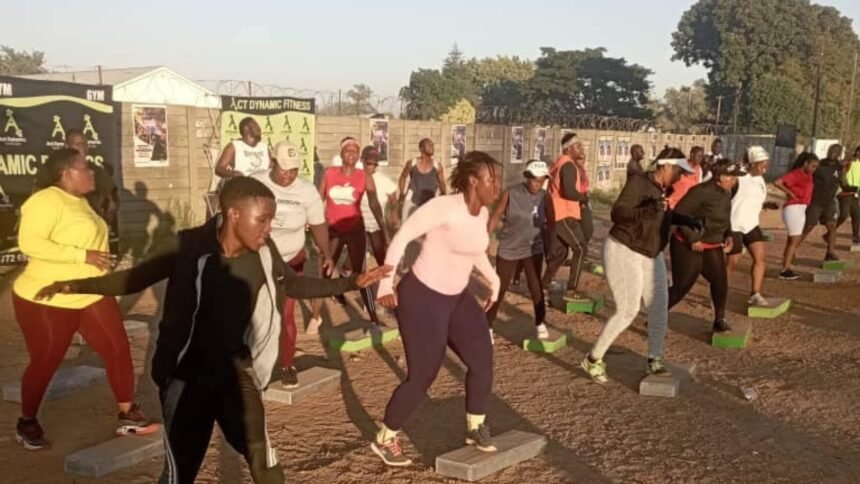Before dawn breaks over Chitungwiza, a township 30 kilometers outside Harare, the usual Saturday rhythms of Socialite Bar take an unexpected turn. Instead of last night’s drinkers, a small group gathers on the bare concrete floor, eyes closed in meditation. The scent of stale beer lingers, but the space has transformed into an unlikely sanctuary for mental healing through yoga.
In a country where economic hardship has become a relentless burden, this free community class represents both quiet rebellion and radical self-care. Led by instructor Actions Winya, who normally teaches in Harare’s affluent suburbs for $30-$100 monthly, these sessions bring an elite wellness practice to those who need it most but can least afford it.
“Yoga isn’t just for the wealthy,” Winya explains as participants settle into downward dog positions between stacked beer crates. “The ghetto has stress too, more stress, actually.” Since 2023, his initiative has offered respite to informal traders, overburdened parents, and unemployed youth navigating Zimbabwe’s compounding crises: 90% unemployment in some sectors, a collapsed healthcare system, and what psychologists call a “silent epidemic” of depression.
The class unfolds to a soundtrack of township life, haggling vendors, blaring kombi taxis, a stark contrast to the serene studios where yoga typically thrives. Participants like 47-year-old John Mahwaya, who supports eight relatives on erratic income, testify to its transformative power. “My mind used to spin like a grinding stone,” says the father of four, rubbing his once-aching back. “Now when problems come, I breathe first.”
For 24-year-old Edinah Makosa, the practice has recalibrated her outlook on unemployment and turbulent relationships. “Before, depression pinned me down like physical chains,” she says, adjusting her pose as a toddler scrambles past. “Now I sell beauty products door-to-door. If a man disappoints? I breathe and move on.”
The scene embodies a growing movement across Africa, where countries like Kenya and South Africa are adapting yoga for underserved communities. India’s government, promoting yoga as soft power, has supported this expansion, though in Chitungwiza, it’s the raw community need that fuels participation.
Winya dreams of proper mats and a dedicated space, but for now, the beer-stained floor serves its purpose. As sunlight finally spills through the tavern’s windows, the group ends in savasana, their stillness a brief triumph over the chaos outside. In a place where survival dominates daily life, this hour of intentional breathing becomes its own quiet revolution, proof that mental wellness isn’t a luxury, but a lifeline.










